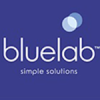Everything you need to clean, hydrate and calibrate pH probes. Probe cleaning and correctly storing pH probes ensures you get the most accurate readings possible and will maximize the life of a probe. The probe surface is where the instrument takes the reading of the solution or soil/media. If the probe face is dirty or contaminated, the readings may be inaccurate. pH probes specifically, should be kept wet at all times for optimal performance and life.
Important information
for Bluelab pH product customers
"My pH probe has white crystals on it. Does this mean it's faulty?"
The pH probe must be stored in KCl (potassium chloride) Storage Solution.
Salt crusting on the probe is normal.
Over time, KCl can evaporate and crystalize. Not every probe will have salt crusting, but if it does, your customers need to:
- Soak the pH probe in KCl Storage Solution for at least 24 hours. This will dissolve the salt crystals and rehydrate the probe.
- Rinse in fresh tap water, and soak the pH probe in pH 4.0 Calibration Solution for at least 10 minutes.
- Calibrate the probe to two points following the Getting Started guide, or visit our Knowledge Base article on how to calibrate.
- Ensure the sponge in the pH Pen storage cap contains KCl Storage Solution, or fill the pH Probe cap with enough KCl to cover the sensor.
Remember to clean, hydrate and calibrate!
| SKU | 9348 |
|---|---|
| Manufacturer's Suggested Retail Price | $25.00 |
| Dimensional/Billable Weight (lbs) | 0.55 |
| Actual Product Weight | 0.55 |
| Length (in.) | 3.9 |
| Width (in.) | 3.7 |
| Height (in.) | 4.9 |
| Lead Time | Normally ships same or next business day |
| Brand | BlueLab |
| Manufacturer | BlueLab |
| Vendor Item # | CAREKITPH |
| UPC | 9421024920623 |







Login and Registration Form